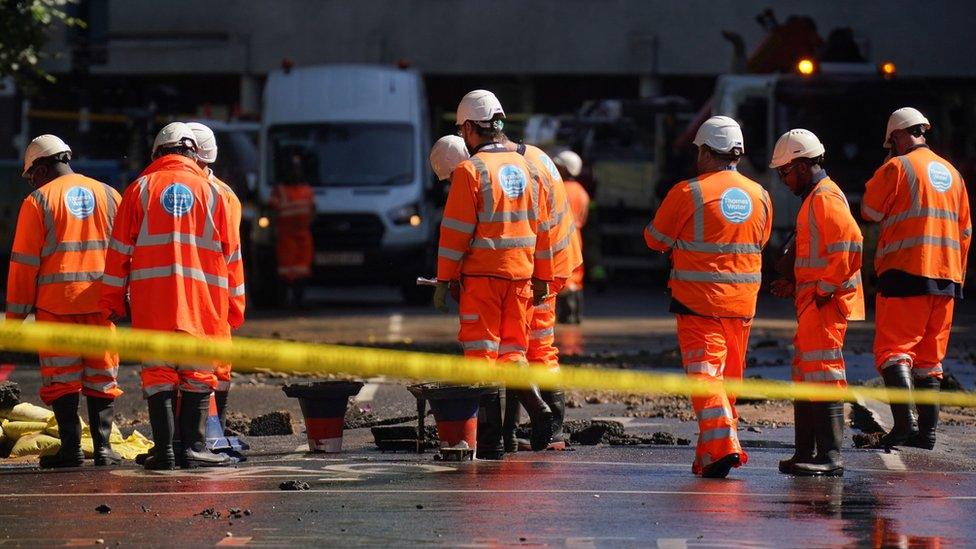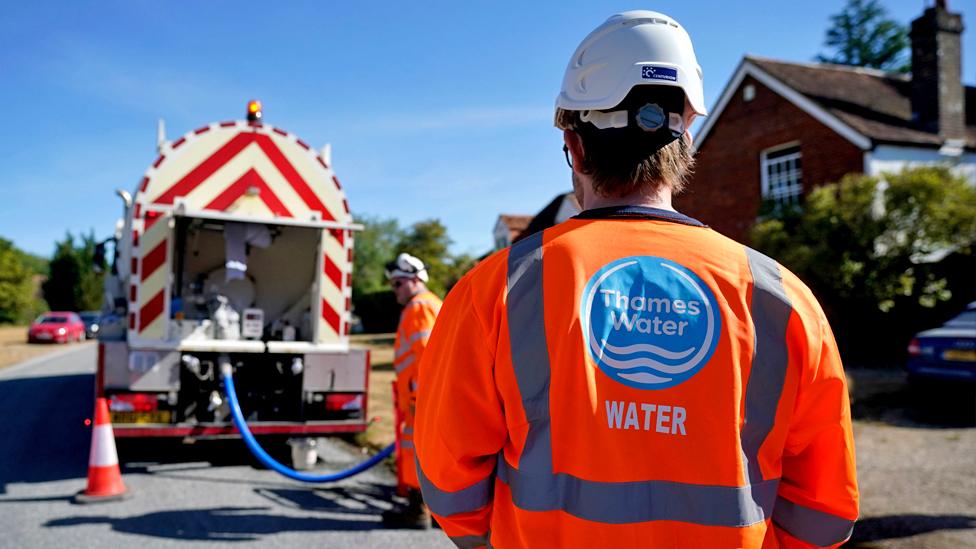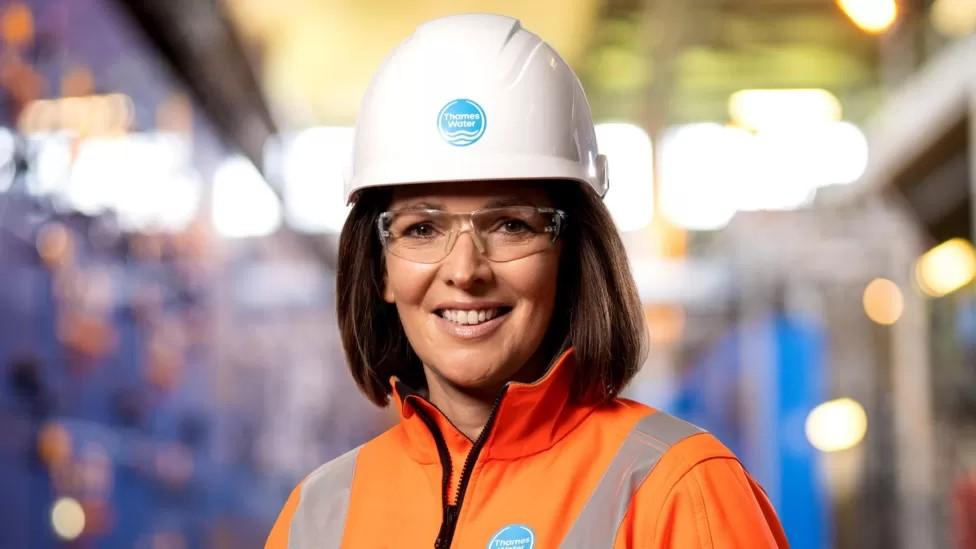Thames Water needs 'substantial' sums of money
- Published

The UK's largest water company Thames Water will need "substantial sums of money" to stabilise its finances, the water regulator has said.
Ofwat boss David Black said talks between the firm and investors to raise the extra funding were continuing.
The company is billions in debt and under pressure to fix its finances over fears it could collapse.
There have been calls to nationalise the firm after its boss quit last week.
"We need to see their revised business plan but we think it's substantial sums of money [that are needed]," Ofwat boss David Black said
He told a Lord's business committee that the issues at Thames Water, which supplies a quarter of the population, were not as acute as at other UK water companies.
However, Mr Black admitted the regulator had taken a "relatively hands-off approach" to managing water companies since privatisation in the late 1980s.
The hearing came hours after it was announced that Thames Water had been handed a £3.3m fine for discharging millions of litres of undiluted sewage into two rivers in Sussex and Surrey, killing more than 1,400 fish in 2017.
Thames Water has faced heavy criticism over sewage discharges and leaks. The company leaks more water than any other water company in the UK, losing the equivalent of up to 250 Olympic-sized swimming pools every day from its pipes.
The company is also struggling with debts of nearly £14bn.
Amid fears that the water firm would collapse, the government said last week "a lot of work is going on behind the scenes" and that a process was in place "if necessary".
A few days later, one of the UK's largest private pension funds, Universities Superannuation Scheme (USS), became the first major investor to publicly back the firm to turn around its finances and performance.
But Mr Black said there may not be an appetite from current investors to put further money into water companies.
He said that the industry had built up too much debt from around 2006 and faced "deep seated challenges".
"I think we should have stepped in at that point to stop companies gearing up," he said, implying that water firms were taking on too much debt relative to equity, or available funds.
"We've changed companies' licences, we have got the powers to stop that happening now.
"At the time, we really didn't have the power to stop that happening," Mr Black said, adding that now Ofwat was "very much of the view" that companies need to reduce their debt to reasonable levels.
If the firm cannot secure investment, it could be placed under government administration until a new buyer is found.
Baroness McGregor-Smith asked Mr Black how much customers' water bills were likely to rise, given the £10bn investment water companies say they need to tackle sewage spills.
Mr Black said that he understood all water companies were "looking at requesting a bill increase" when they submitted their business plans to Ofwat later in the year, and that most of them were looking at "quite significant bill increases," but that the regulator was "yet to see the maths worked out."
When asked how much of the £10bn would be funded by increased customer bills, Mr Black said that was something that would be "examined as part of the price review".
However, he said that investment that involved companies "catching up on their current obligations," he thought was "an issue for them and their shareholders to fund".
But he added: "Where they're going above and beyond existing standards...that will be an issue for customers to fund ultimately. So investors would pay upfront and it's recovered from customers over time."
Professor David Hall, who has investigated the finances of England's nine water and wastewater companies since privatisation, said delivering the investment needed to clean up rivers, improve services and plug leaks was key to the future of Thames Water.
He said Thames had suggested getting customers to cover the cost through bill increases of up to 25%. But Ofwat said that was "not acceptable".
He added that the regulator had the "very serious option" of temporarily nationalising Thames if it could not find the £2bn of funds needed to turn things around.
He said the government's special administration regime would be used "to protect the service, not to protect the company".
Related topics
- Published2 July 2023

- Published27 June 2023

- Published1 July 2023
